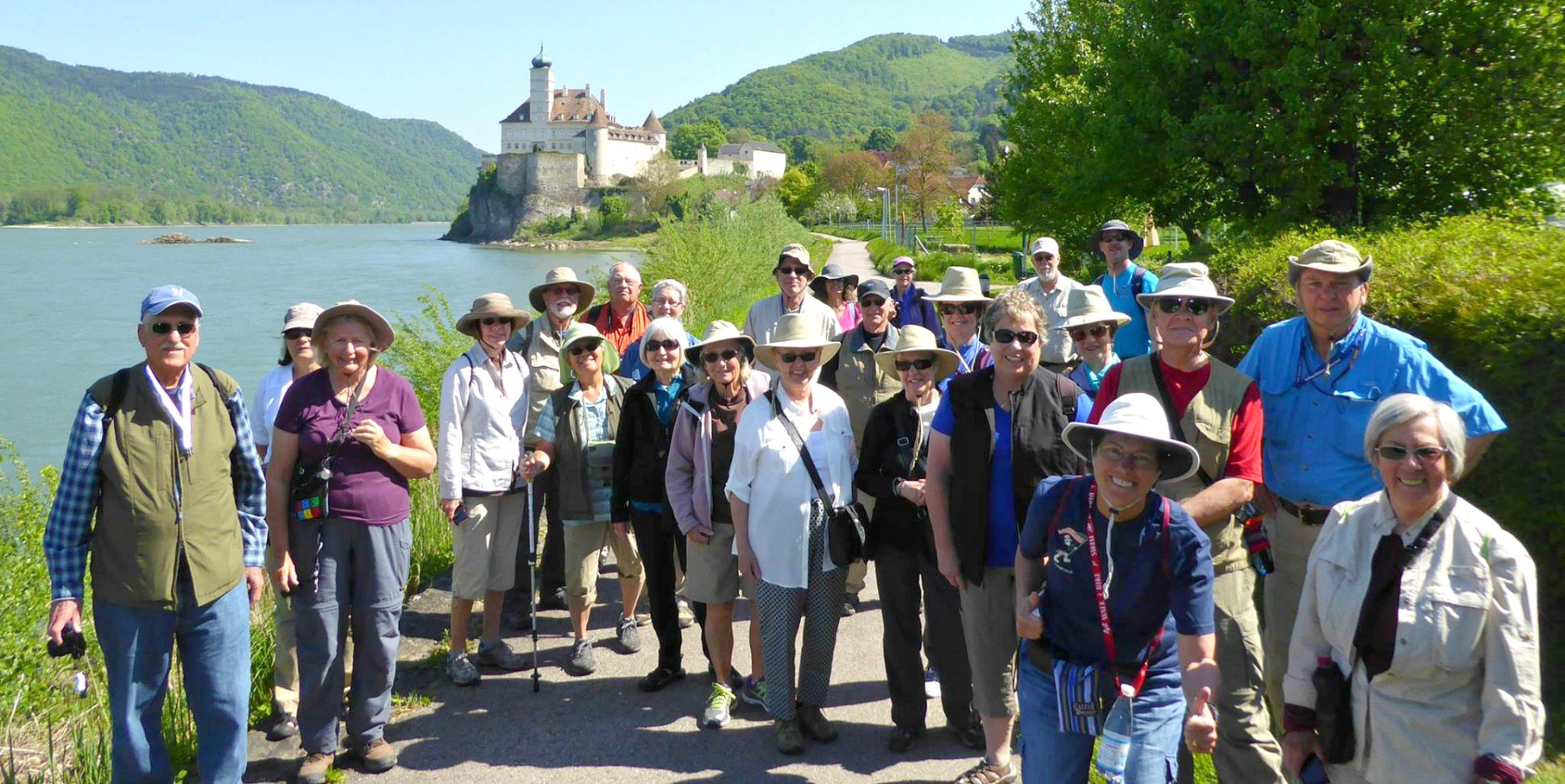Senior Tours to Europe offer a wealth of opportunities for discerning travelers seeking enriching experiences. From exploring ancient Roman ruins to cruising along picturesque rivers, carefully curated itineraries cater to the specific needs and interests of older adults. This exploration delves into the diverse options available, examining tour types, accessibility features, pricing considerations, and essential pre-trip planning, ensuring a safe, comfortable, and memorable European adventure.
The European continent boasts a rich tapestry of history, culture, and breathtaking landscapes, making it an ideal destination for senior travelers. This guide aims to simplify the planning process, providing valuable insights into choosing the perfect tour, understanding associated costs, and prioritizing health and safety throughout the journey. Whether you’re interested in escorted tours, independent travel, or river cruises, we’ll cover everything you need to know to embark on your dream European escape.
Tour Types & Destinations
European travel offers a wealth of experiences perfectly suited to senior travelers, catering to diverse interests and activity levels. Choosing the right tour depends on individual preferences, budget, and desired level of independence. This overview explores popular destinations and tour types to help seniors plan their ideal European adventure.
European Destinations for Senior Tours
The following table highlights popular destinations categorized by region, showcasing typical activities and average trip lengths. These are averages and can vary depending on the specific itinerary.
| Region | Destination | Typical Activities | Average Trip Length (Days) |
|---|---|---|---|
| Western Europe | France (Paris, Normandy) | Museum visits, historical site tours, wine tasting, leisurely walks along the Seine | 7-14 |
| Western Europe | United Kingdom (London, Edinburgh) | Historical sightseeing, theatre performances, afternoon tea, exploring castles and palaces | 7-10 |
| Southern Europe | Italy (Rome, Florence, Venice) | Ancient Roman ruins exploration, Renaissance art appreciation, gondola rides, enjoying delicious cuisine | 10-14 |
| Southern Europe | Spain (Barcelona, Seville) | Exploring Gothic architecture, flamenco shows, tapas tours, relaxing on beaches | 7-10 |
| Central Europe | Austria (Vienna, Salzburg) | Classical music concerts, exploring imperial palaces, visiting charming villages, enjoying local pastries | 7-10 |
| Central Europe | Germany (Munich, Berlin) | Exploring historical sites, beer gardens, museum visits, enjoying local markets | 7-14 |
Types of Senior Tours
Several tour types cater specifically to the needs and preferences of senior travelers. These options offer varying levels of independence and structure.
The choice of tour type significantly impacts the overall travel experience. Factors such as physical capabilities, desired level of independence, and social preferences should all be considered when making a selection.
- Escorted Tours: These tours provide a structured itinerary with a tour guide accompanying the group throughout the trip. This option offers convenience and minimizes logistical concerns.
- River Cruises: River cruises offer a relaxing pace with onboard amenities and easy access to multiple destinations along the river. They are ideal for those seeking a comfortable and scenic journey.
- Small Group Tours: These tours offer a more intimate experience with a smaller group size, allowing for more personalized attention and interaction.
- Independent Travel Packages: These packages provide flexibility and independence, allowing seniors to customize their itinerary and explore at their own pace. However, they require more planning and self-sufficiency.
Unique Selling Propositions of Each Tour Type
Each tour type offers unique benefits that cater to the specific needs of senior travelers.
Understanding these key differences helps seniors choose the best fit for their travel style and preferences, ensuring a comfortable and enjoyable European experience.
Remember to click exotic places to vacation to understand more comprehensive aspects of the exotic places to vacation topic.
- Escorted Tours: Stress-free travel with pre-arranged accommodations, transportation, and guided excursions. Ideal for seniors who prefer a structured itinerary and minimal planning.
- River Cruises: Relaxing and scenic journey with onboard amenities, convenient access to multiple destinations, and a slower pace. Suitable for seniors with mobility limitations or those seeking a comfortable travel experience.
- Small Group Tours: More personalized attention from guides, opportunities for social interaction, and a more intimate travel experience. Appeals to seniors who prefer smaller group settings and a more personal touch.
- Independent Travel Packages: Flexibility and control over itinerary, allowing seniors to customize their trip based on personal interests and preferences. Suitable for independent and adventurous seniors who are comfortable with self-guided exploration.
Accessibility & Inclusivity: Senior Tours To Europe

Senior travel is booming, and tour operators are increasingly recognizing the need to cater to the diverse needs of this growing market segment. Accessibility and inclusivity are no longer optional extras but essential components of a successful and ethical senior travel program. This section details the efforts being made to ensure comfortable and safe journeys for all senior travelers, regardless of their mobility or other needs.
Accessibility Features Offered by Tour Operators
Many tour operators are actively improving accessibility for senior travelers with varying mobility needs. This includes features ranging from wheelchair-accessible transportation to modified accommodations and specialized itineraries. The following table highlights some examples:
| Tour Operator | Accessibility Features | Destination Examples | Contact Information |
|---|---|---|---|
| Travel for All | Wheelchair-accessible transportation, accessible hotel rooms, assistance with transfers, customized itineraries, trained staff | Italy, France, Spain | (Example phone number) (Example email address) |
| Accessible Adventures | Accessible tours and excursions, ramps and elevators, accessible restrooms, audio guides, visual aids | United Kingdom, Ireland, Greece | (Example phone number) (Example email address) |
| Grand Circle Travel | Wheelchair-accessible motorcoaches, accessible hotel rooms, assistance with luggage, trained staff | Europe-wide | (Example phone number) (Example email address) |
| Road Scholar | Various levels of assistance offered depending on the tour, including accessible transportation and lodging options. | Europe-wide | (Example phone number) (Example email address) |
Note: Contact information is illustrative and should be replaced with actual contact details from the respective tour operators. The features listed represent a selection and may not be exhaustive. Always verify specific accessibility features with the tour operator before booking.
Inclusivity in Senior Travel
Inclusivity extends beyond physical accessibility. It encompasses creating travel experiences that are welcoming and enjoyable for seniors from diverse backgrounds and with varying needs. Tour operators prioritizing inclusivity often offer diverse itineraries that cater to a wide range of interests, provide clear and accessible communication, and foster a sense of community among travelers. For example, some operators offer tours specifically designed for LGBTQ+ seniors or those with specific cultural or religious needs.
Others may provide options for single travelers, avoiding the potential loneliness that can accompany group travel.
Accommodations and Transportation Options for Seniors
Many hotels and transportation providers are adapting to the needs of senior travelers. Hotels may offer features like grab bars in bathrooms, roll-in showers, wider doorways, and lower beds. Transportation options often include comfortable, climate-controlled coaches with ample legroom and accessible restrooms. Some operators utilize smaller group sizes to enhance personalization and create a more intimate travel experience.
Furthermore, the use of slower-paced itineraries, allowing for more rest and relaxation, is also becoming increasingly common.
Health & Safety Considerations
Planning a European tour for senior travelers requires meticulous attention to health and safety. This section Artikels essential precautions and considerations to ensure a smooth and enjoyable trip, minimizing potential risks and maximizing the experience. Proper preparation and awareness are key to a successful and worry-free journey.
Prioritizing health and safety is paramount when planning any trip, but especially for senior travelers. Europe offers diverse environments and cultural experiences, but understanding potential health challenges and taking preventative measures are crucial for a positive outcome.
Essential Health and Safety Tips for Senior Travelers
Before embarking on a European adventure, senior travelers should proactively address several key health and safety aspects. The following points provide a practical checklist for ensuring a safe and comfortable journey.
- Consult your physician for a pre-trip checkup and necessary vaccinations. Discuss any existing health conditions and obtain recommendations for managing them while traveling.
- Pack a comprehensive first-aid kit including any personal medications, along with copies of prescriptions.
- Carry a detailed itinerary and emergency contact information, including local emergency numbers and the contact details of your tour operator.
- Stay hydrated by drinking plenty of water, especially in warmer climates. Avoid consuming tap water unless it’s known to be safe.
- Be mindful of food safety and hygiene. Choose reputable restaurants and avoid consuming uncooked or undercooked food.
- Wear comfortable shoes and appropriate clothing for the weather conditions. Consider bringing layers to adjust to temperature changes.
- Use reputable transportation options and avoid walking alone in poorly lit or unfamiliar areas, especially at night.
- Be aware of your surroundings and take precautions against petty theft. Keep valuables secure and avoid displaying expensive jewelry or electronics.
- Learn basic phrases in the local language to facilitate communication in case of emergencies.
- Inform your bank and mobile phone provider of your travel plans to avoid any service disruptions.
Travel Insurance Options and Importance for Senior Travelers
Comprehensive travel insurance is not merely a suggestion but a necessity for senior travelers. It offers crucial protection against unforeseen circumstances that can significantly impact the trip and potentially incur substantial financial burdens.
Policies should ideally cover medical emergencies, including evacuation and repatriation, lost or stolen luggage, trip cancellations, and other unexpected events. Senior travelers should carefully review policy details and ensure adequate coverage for their specific needs and pre-existing conditions. Many insurers offer specialized policies for seniors, addressing potential health risks more comprehensively.
The cost of medical care abroad can be exorbitant, and travel insurance can provide financial security in case of a medical emergency. It’s a worthwhile investment that can safeguard against unexpected expenses and potential disruptions to the trip.
Sample Travel Itinerary Incorporating Rest Periods
A well-structured itinerary is crucial for senior travelers, factoring in rest periods and potential health concerns. The following sample itinerary illustrates how to balance sightseeing with ample time for relaxation and rejuvenation.
This is a sample 7-day itinerary. Adjust the pace and duration based on the specific needs and preferences of the travelers.
| Day | Activity | Rest Considerations |
|---|---|---|
| Day 1 | Arrival in Rome, check into hotel, light sightseeing around the hotel area. | Relaxation after travel, gentle stroll. |
| Day 2 | Vatican City tour (morning), afternoon free for rest and relaxation at the hotel or a park. | Structured tour with breaks, ample downtime. |
| Day 3 | Colosseum and Roman Forum (morning), afternoon shopping and leisurely lunch. | Moderate pace, breaks for seating and hydration. |
| Day 4 | Travel to Florence by train (morning), afternoon settling into hotel, evening light stroll. | Travel time factored in, relaxed evening. |
| Day 5 | Uffizi Gallery (morning), afternoon exploring the Ponte Vecchio and enjoying gelato. | Structured tour, breaks for refreshments. |
| Day 6 | Free day for exploring Florence at your own pace, optional cooking class. | Flexibility to rest or engage in activities at your own pace. |
| Day 7 | Departure from Florence. | Allow ample time for check-out and travel to the airport. |
Pre-Trip Planning & Preparation
Embarking on a European tour requires meticulous pre-trip planning, especially for senior travelers. Thorough preparation ensures a smooth and enjoyable experience, minimizing potential stress and maximizing the opportunity to savor the journey. This section Artikels essential steps to ensure a seamless travel experience.Careful planning is crucial for a successful senior European tour. Overlooking even minor details can lead to unforeseen complications.
Proactive preparation will allow seniors to fully immerse themselves in the cultural richness of Europe without the added burden of logistical hurdles.
Essential Documents and Preparations
A comprehensive checklist is vital for stress-free travel. Senior travelers should gather and verify all necessary documents well in advance of their departure date to avoid last-minute anxieties. Missing even one crucial document can significantly impact the trip.
- Passport: Ensure your passport is valid for at least six months beyond your intended return date. Many European countries require this minimum validity period.
- Visa (if required): Check the visa requirements for each country you plan to visit. The process can take several weeks or even months, so begin early.
- Travel Insurance: Comprehensive travel insurance is essential, covering medical emergencies, trip cancellations, and lost luggage. Consider policies specifically designed for senior travelers.
- Flight/Train Tickets: Confirm all booking details and print out or save electronic copies of your tickets. Note any baggage allowances.
- Hotel Reservations: Print confirmations or save electronic copies of your hotel bookings. Note addresses and contact information.
- Copies of Important Documents: Make photocopies of your passport, visa, tickets, and other essential documents. Store these separately from the originals.
- Emergency Contact Information: Keep a list of emergency contact numbers, including your doctor, family members, and your tour operator.
- Medication List and Prescriptions: Carry a list of all medications you take, including dosages and instructions. Include copies of your prescriptions.
- Credit Cards and Bank Information: Inform your bank of your travel dates to avoid any issues with card usage abroad. Carry multiple credit cards and have backup cash.
- Phrasebook or Translation App: A basic phrasebook or translation app can be invaluable, especially in countries where English isn’t widely spoken.
Visa and Travel Permit Acquisition for Senior Citizens, Senior tours to europe
The visa application process can vary significantly depending on nationality and destination. Senior citizens may encounter additional considerations, such as health-related questions or requirements for supporting documentation. It’s advisable to contact the embassy or consulate of the relevant country well in advance to understand specific requirements.The process generally involves completing an online application form, submitting supporting documents (such as proof of financial stability, travel itinerary, and health insurance), and attending an interview (in some cases).
Allow ample time for processing, as delays are possible. Seek professional assistance from a visa agency if needed, particularly if navigating complex requirements. For example, a senior citizen from the US traveling to Schengen Area countries would need to apply for a Schengen visa, providing evidence of sufficient funds, travel insurance, and a confirmed itinerary.
Effective Packing for Senior Tours
Packing efficiently is crucial, especially when considering weight restrictions and ease of access. Senior travelers should prioritize lightweight, comfortable clothing and essential items. Avoid overpacking to prevent strain and inconvenience.
- Lightweight Clothing: Choose wrinkle-resistant, lightweight clothing items that are easy to layer. Pack neutral colors that can be mixed and matched.
- Comfortable Shoes: Pack comfortable, supportive walking shoes that are broken in. Avoid packing new shoes that could cause blisters.
- Essential Medications: Pack medications in their original containers with labels clearly visible. Carry a sufficient supply for the entire trip, plus a few extra days’ worth.
- Toiletries: Use travel-sized containers for toiletries to minimize weight and comply with airline regulations.
- Packing Cubes: Use packing cubes to organize clothing and other items, making it easier to find what you need.
- Accessible Baggage: Choose luggage with wheels and a telescopic handle for easy maneuverability. Consider a lightweight backpack for day trips.
- Personal Comfort Items: Pack any personal items that will enhance comfort, such as a travel pillow, eye mask, or earplugs.
Planning a senior tour to Europe requires careful consideration of various factors, but the rewards are immeasurable. By understanding the different tour types, prioritizing accessibility and inclusivity, and meticulously planning your trip, you can create a truly unforgettable experience. This comprehensive guide serves as a valuable resource, empowering senior travelers to confidently explore the wonders of Europe, creating memories that will last a lifetime.
Remember to prioritize your health and well-being, and embrace the rich cultural tapestry that awaits.



